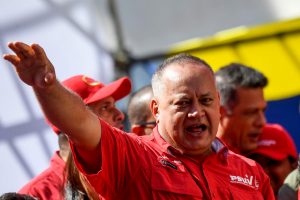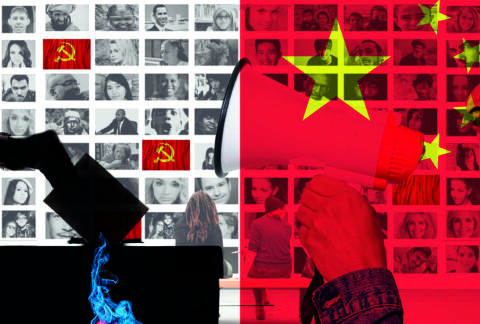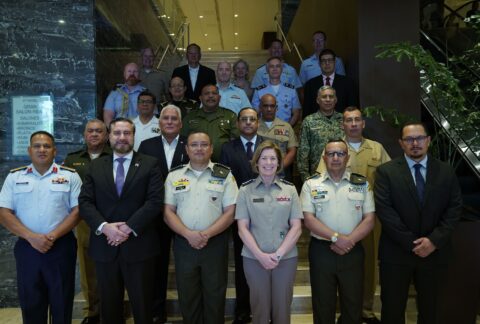In Latin America, criminal cartels, have traditionally run drug trafficking. In Venezuela, this activity is managed within the government. Under the regime of Nicolás Maduro, Venezuela’s position in the global cocaine business will increase.
U.S. Navy Admiral Craig S. Faller, commander of U.S Southern Command, in a November 28, 2019 interview with Voice of America (VOA), said money from illicit narcotics is now a “big part” of the financing of the Maduro regime in Venezuela.
In the same interview, Adm. Faller noted that “the illegitimate Maduro regime, at the expense of his people, it’s sad, has facilitated an increase of all types of illicit activity. And that’s drug flow, that’s terrorism, it is illegal mining. This drug flow has been part of that. So, if you are a cartel leader, you now see an easy pathway through Venezuela into commercial shipping and air to distribute your product, and Maduro and his illegitimate regime are getting a cut. Maduro does whatever it takes to keep his team and himself in power, and this is a big part of keeping his finances going — illicit narcotics money.”

(Photo: Federico Parra / AFP)
In a November 2019 interview with the Miami Herald Adm. Faller added, “There’s over a 50 percent increase of narcotrafficking in and through Venezuela, and Maduro and his cronies are lining their pockets, in cahoots with the illicit narcotrafficking.”
VOA reported on November 13, 2019 that in May 2018, Venezuela’s former military intelligence chief, Hugo Carvajal, was named as a key member of a Venezuelan drug cartel known as the Cartel of the Suns (Cartél de los Soles).
According to the U.S. Department of Justice, the name is derived from the golden stars that generals in the Venezuelan National Guard wear as emblems. These high-ranking military officers lead the cartel, which not only cooperates with drug traffickers, but also provides heavily armed security, military-grade weapons, and intelligence to protect some of these drug shipments.
According to Small Wars Journal, “The Cártel de los Soles is the only known drug organization in the region completely comprising military and government officials. In fact, Cártel de los Soles leaders are involved in every realm of Venezuela’s drug-trafficking structure, which makes them a criminal force to reckon with.
Furthermore, their unique make-up of high-ranking officials offers them unique command and control posts at every major airport, checkpoint, and port where drug shipments pass through. This is especially true in states including Apure, Zulia, and Táchira, which all lie along Venezuela’s shared border with Colombia.”
One of the cartel’s leaders, Diosdado Cabello, was sanctioned in 2018 by the U.S. Treasury’s Office of Foreign Assets Control (OFAC), which indicated that he had “personally profited from extortion, money laundering, and embezzlement.” Cabello is the second-most influential figure in the Venezuela regime. According to OFAC, Cabello “coordinated drug trafficking activities with Maduro, who received substantial profits from the trade.”
In May 18, 2018, a press release by U.S. Secretary of the Treasury Steven T. Mnuchin said that “The Venezuelan people suffer under corrupt politicians who tighten their grip on power while lining their own pockets. We are imposing costs on figures like Diosdado Cabello, who exploit their official positions to engage in narcotics trafficking, money laundering, embezzlement of state funds, and other corrupt activities.”
Johan Obdola, president of the Latin America-focused global intelligence and security firm IOSI, told Fox News, “The Venezuelan military force has become a narco-criminal, armed organization. Most of the top and mid-commanders are deeply involved in corruption, drug operations, and serious human rights abuses.” Obdola added that “Small pro-regime policing agencies and military units across the nation conduct these criminal operations centered on drug trafficking, kidnapping, and robbery to survive the crisis.”









